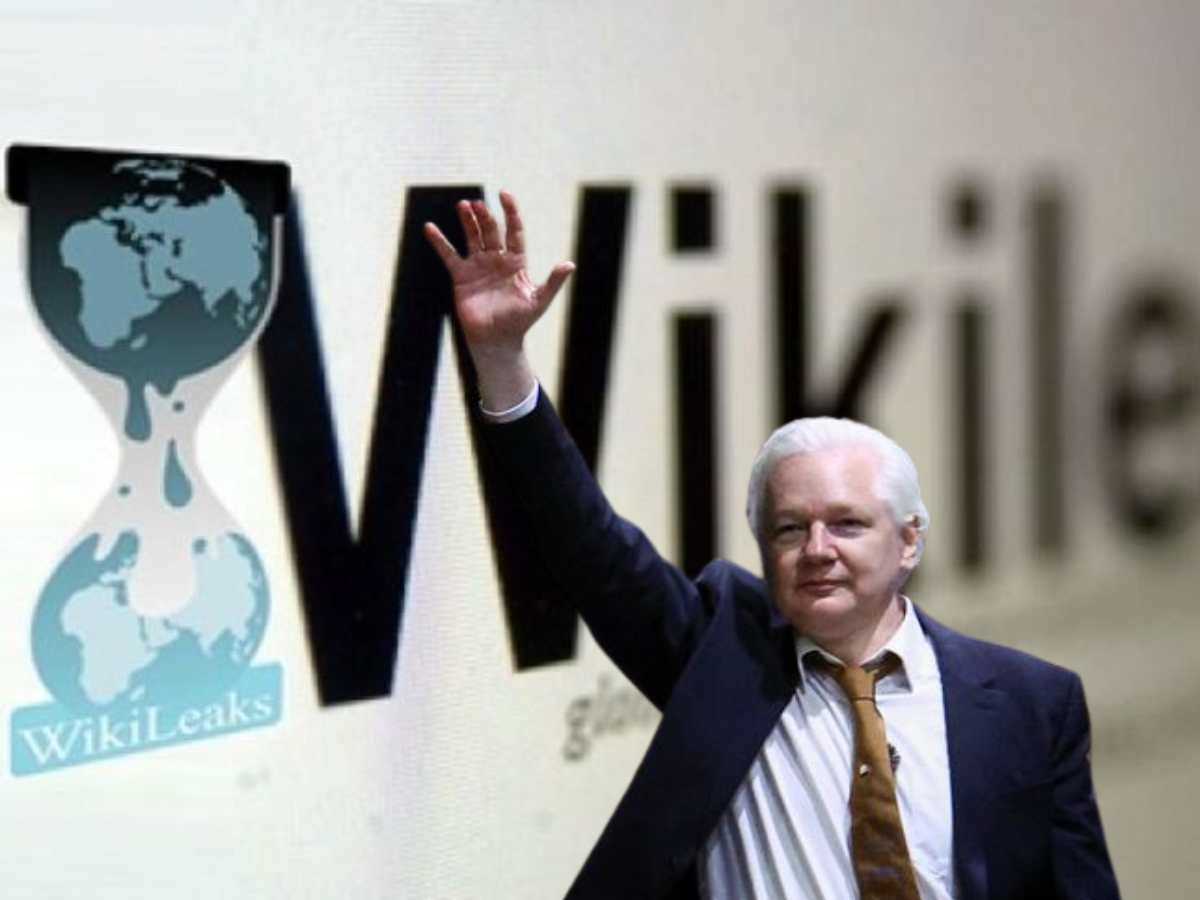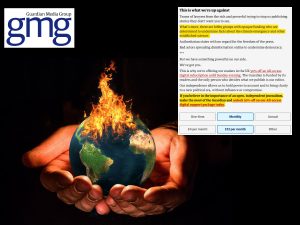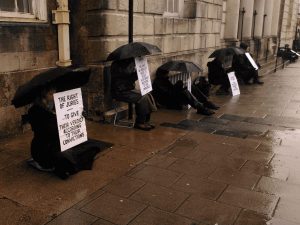Noam Chomsky perfectly summarised the liberal media thusly:
The media are a corporate monopoly.
These are days of vast conspiracy against humanity by the invisible empire, in which tight control over channels of media dissemination plays a central role in – erroneously – defining political reality, with the result of stunting public perception.
Where once journalism was a byproduct of politics and a realm of genuine public enlightenment, intellectualism and exploration of social issues, today political developments are largely a byproduct of media orchestration. Most major political events, particularly wars, are deliberately manipulated into existence by the masters of the media class who use their power marshal support for their schemes.
Information communication technology and the Internet have emboldened both the best and worst aspects of humanity.
Our naive embrace of what are effectively commercialised military technologies has opened the door to malicious surveillance and covert social control, particularly in the case of social media enterprises, which are sources of human connection in theory, but function as pervasive corporate spyware in practice.
Enter Assange and Wikileaks
Julian Assange, who invented whist website WikiLeaks to circumvent censorship and spread accurate information, predicted the collapse of liberal civilisation into an Orwellian global surveillance superstate long ago. Describing this dynamic he said:
Big Brother is home. He is installed in the item you just dragged home from the Apple store.
He elaborated:
The world is not sliding, but galloping into a new transnational dystopia. This development has not been properly recognized outside of national security circles. It has been hidden by secrecy, complexity and scale. The internet, our greatest tool of emancipation, has been transformed into the most dangerous facilitator of totalitarianism we have ever seen. The internet is a threat to human civilisation.
The goal of the Silicon Valley corporations monopolising the web and the national security entities they collude with is to create an invisible interface, machine that absorbs Internet surfers into a matrix that modifies perception and behaviour. They have incepted an apparatus that bolsters egregiously harmful political agendas that citizens would otherwise reject and resist.
This is nothing less than techno-feudalism, perhaps even technocratic fascism, a political destiny for the world we were once conscious about averting, preferring eventually to surrender to the anodyne to political consciousness supplied, purposefully, by the assorted paraphernalia of commercialised surveillance.
Smart technologies and social media are prime examples. In the grasp of this matrix undesirable, destructive political agendas seem desirable and normal.
Dissidence openly defying this system and the popular propagandist fictions sustaining it is subject to systemic ostracism, embarrassing public ridicule, and thorough demonisation. Because propaganda is the weapon that allows empires ability to engineer comprehensive passivity, apathy and acquiescence amongst citizens, those who successfully diagnose the blatant falsity of its messages and fail to submit become targets of smear campaigns.
A real and present political opposition
Genuine political opposition to the establishment is a scarce phenomena today but has never been more needed. The countervailing force to the US quest for world domination launched by WikiLeaks was a real and present political opposition of this kind.
It’s a revolutionary organisation in several ways, perhaps most significantly from the perspective of history, as an information age permutation of the Gutenberg press.
In the same way the Church maintained a monopoly on acceptable belief in the dark ages, the post-democratic neoliberal world is confined by blind faith in doctrinaire ideas and economic fundamentalism.
Just as the Gutenberg press emancipated medieval Europe from the shackles of officialdom, so too did WikiLeaks shatter the ruling illusions of the contemporary geopolitical establishment.
In the annals of history, Assange and his colleagues will loom large besides other celebrated figures of political virtue, the likes of which contain Orwell, Marx, Ellsberg, but many, many others, too numerous to name, who lived as catalysts for progress and justice.
Their remarkable achievement is to have helped restore public consciousness and bring it out of a seemingly omnipotent state of collective amnesia, deliberately cultivated by establishment actors who benefit from the public being kept ignorant. It is no less than a restitution of the sovereignty of the mind, a defence of the life of the mind, the ultimate antidote to fascism.
Discrediting the truthtellers
There is a longstanding, ongoing – but increasingly transparent and fragile – attempt to discredit WikiLeaks and sully the shine of its achievements.
The Obama administration, particularly Hillary Clinton, was tremendously keen about this sordid endeavour, the exact same Hillary Clinton who vocally fantasised about droning Assange and who, unlike him, will be remembered negatively, for having been a driving force in military intervention that stripped Arab countries of independence, such as the war in Libya, a major Clinton project.
The destruction of native political authorities in Middle Eastern countries, though they be riddled with many of their own imperfections and flaws, has not been a force for freedom.
The lie behind this, that these wars were in support of citizens yearning for freedom, is nakedly exposed by WikiLeaks data, hence the ferocity of the establishment uprising against Assange, who threatened their power as de facto world emperors.
John Pilger, a veteran anti-imperialist journalist who was widely acclaimed, and a key comrade and colleague of Assange said that WikiLeaks made plain:
The truth about a war on terror that was always a war of terror.
The fundamental fault line running beneath the seismic WikiLeaks phenomenon is the tension between media and journalism it makes apparent. The missions of media and genuine journalism are not simply unlike, they are fundamentally contradictory.
Wikileaks will go down in the annals of history
Media is a public relations asset utilised by elites that masquerades as a free, fair system that accommodates diverse opinion. Journalism in the truest and fullest sense of the word is any publishing activity that transcends or sits outside of this machine.
To return to Chomsky, he offered this perceptive insight on media perception management:
The smart way to keep people passive and obedient is to strictly limit the spectrum of acceptable opinion, but allow very lively debate within that spectrum….
Never has such thirst for social control been apparent. WikiLeaks is the noble exception to this regime and deserves to be recognised as such irrespective of one’s personal opinion about Assange as a personality.
Featured image via the Canary




